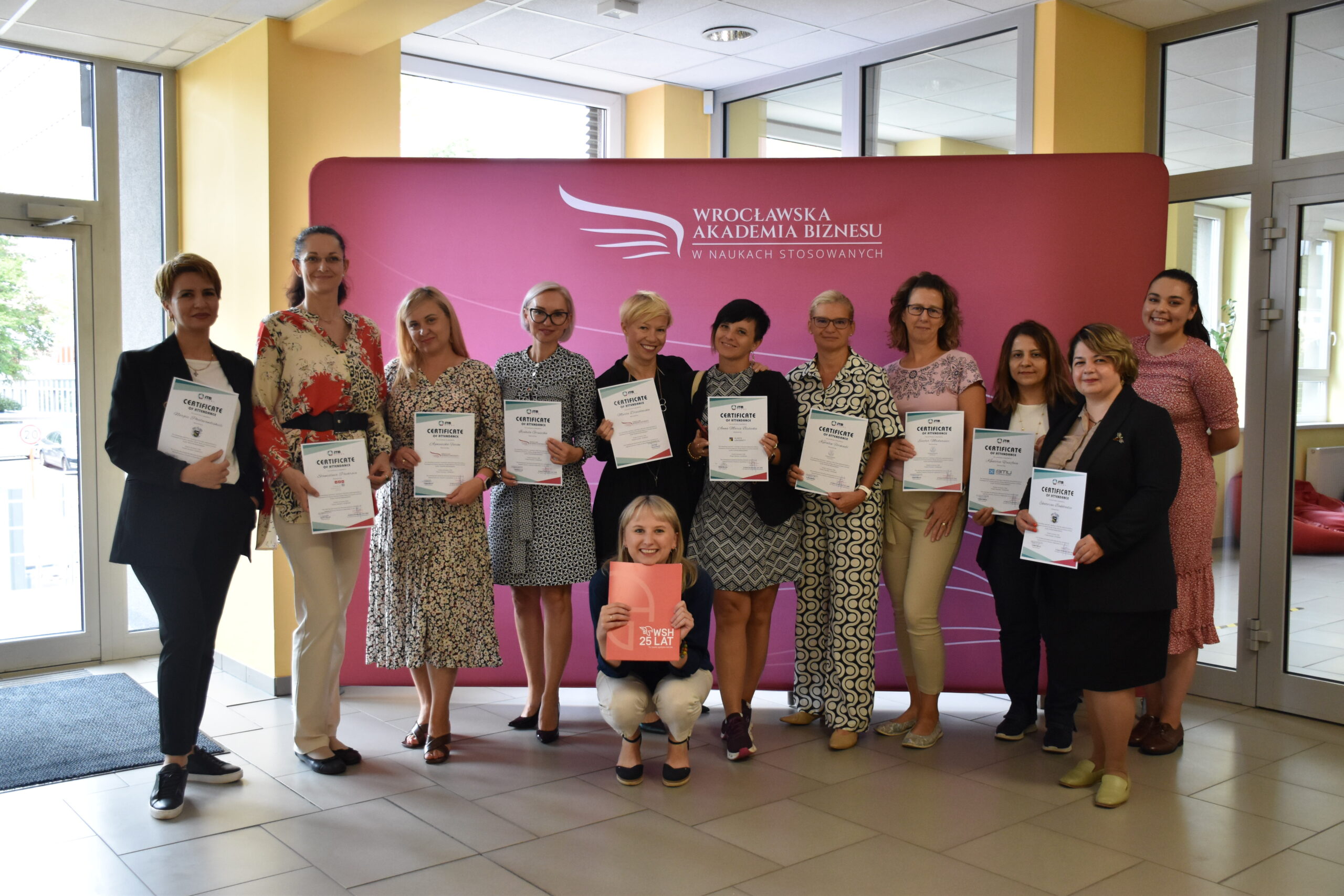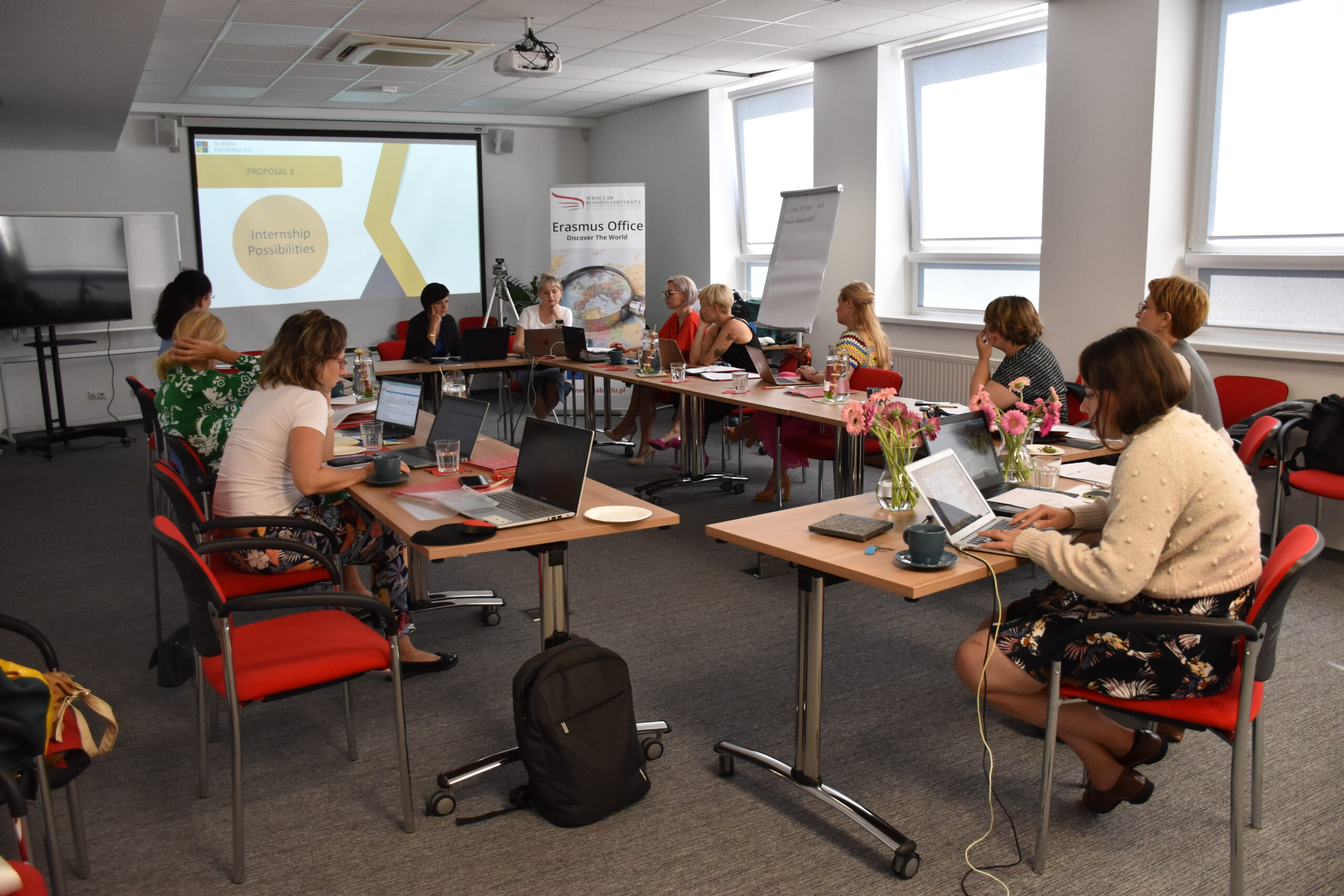Slow Tourism Management EMDM (Erasmus Mundus Design Measures)

AKTUALNOŚCI:
Wrocławska Akademia Biznesu jako jedyna uczelnia niepubliczna w Polsce realizująca program Erasmus Mundus Design Measures! – PL
WAB wraz z 6 uniwersytetami partnerskimi z Węgier, Czech, Gruzji, Turcji i Azerbejdżanu rozpoczyna realizację programu Erasmus Mundus Design Measures. Program potrwa 15 miesięcy od września 2022 do końca listopada 2023. Celem programu jest przygotowanie wspólnych studiów magisterskich Erasmus Mundus i gotowość do ich uruchomienia w kolejnych latach akademickich. Wraz w uczelniami partnerskimi: University of Pannonia (Węgry), European University Tbilisi (Gruzja), College of Polytechnics Jihlava (Republika Czeska), Alanya HEP University (Turcja), Batumi State University (Gruzja) oraz Baku Engineering University (Azerbejdżan), uzyskaliśmy wsparcie z funduszy Unii Europejskiej w ramach akcji ERASMUS-EDU-2022-EMJM-DESIGN, dla projektu wyjątkowych studiów magisterskich „Slow Tourism Management”. Efektem projektu będzie również poprawa potencjału dydaktycznego i organizacyjnego naszych uczelni, otwartość na szerszą współpracę z podmiotami zagranicznymi i krajowymi oraz na innowacje dydaktyczne i poprawa stopnia umiędzynarodowienia i konkurencyjności naszych uczelni.
WAB as the only private university in Poland to implement the Erasmus Mundus Design Measures program! – ENG
WAB, together with 6 partner universities from Hungary, the Czech Republic, Georgia, Turkey and Azerbaijan, is now starting the implementation of the Erasmus Mundus Design Measures program. The program will be implemented for 15 months from September 2022 to the end of November 2023. The aim of the program is to prepare Erasmus Mundus Joint Master Degree and be ready to launch it in the upcoming academic years. Together with partner universities: University of Pannonia (Hungary), European University Tbilisi (Georgia), College of Polytechnics Jihlava (Czech Republic), Alanya HEP University (Turkey), Batumi State University (Georgia) and Baku Engineering University (Azerbaijan), we obtained EU-funded support within the ERASMUS-EDU-2022-EMJM-DESIGN call, for the creation of unique master’s studies „Slow Tourism Management”. The project will also result in the improvement of the teaching and organizational potential of our universities, openness to wider cooperation with foreign and domestic entities, as well as didactic innovations and improvement of the degree of internationalization and competitiveness of our universities.
Project Meetings
Hungary
On 27-28.02.2023 a two-day meeting of representatives of Poland, Hungary, Czech Republic, Turkey, Azerbaijan and Georgia was held at the University of Pannonia in Veszprem – European Capital of Culture 2023. During which the assumptions of the project Erasmus Mundus Design Measure – Slow Tourism Management such as:
- Study Program
- Learning outcomes
- EMDM project management
- Financial management of the project
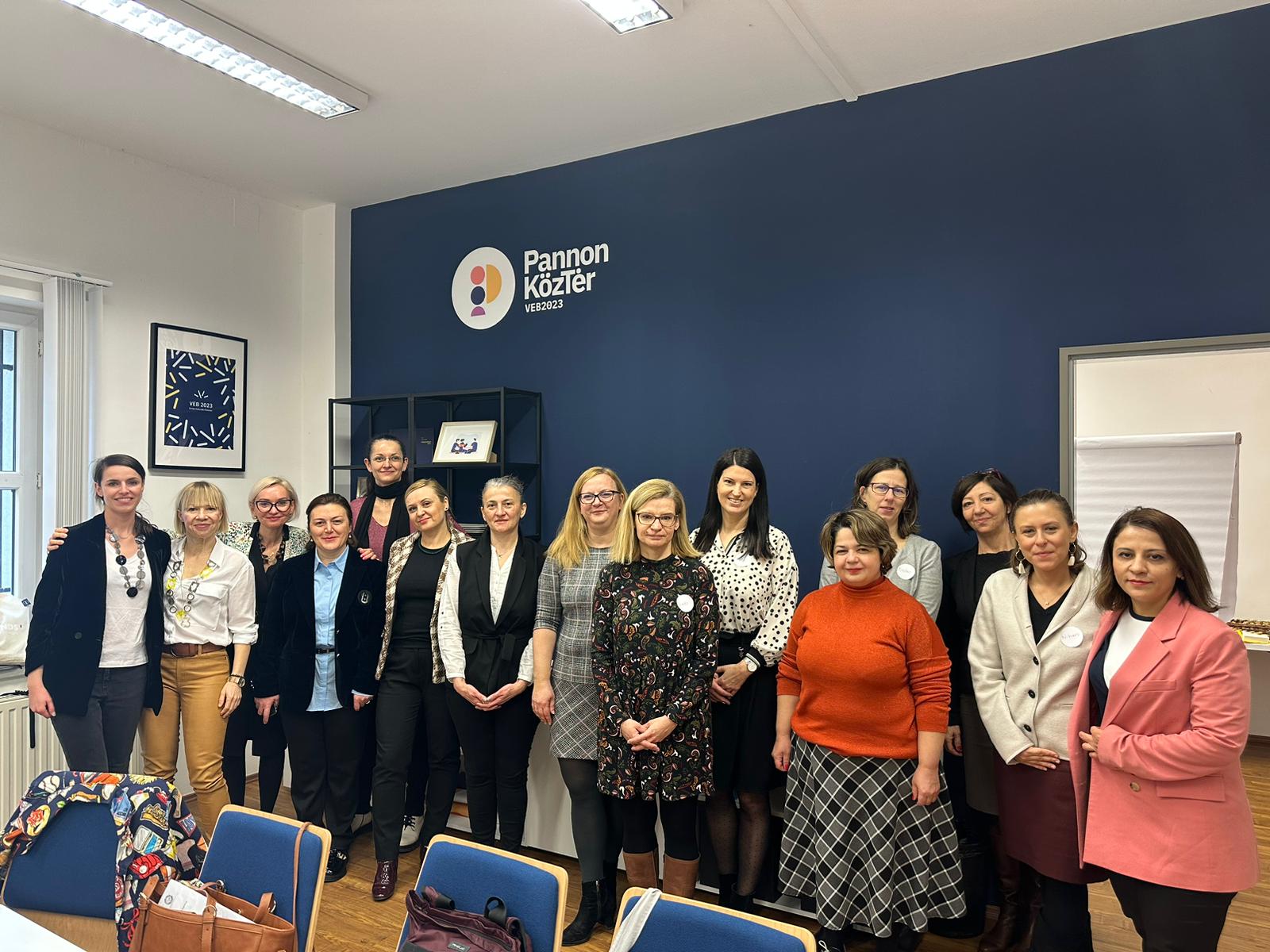
Georgia
Partner Meeting Report 18-19 May 2023, Tbilisi, Georgia
The second international meeting of Slow Tourism Management Erasmus Mundus Design Measures project partners took place in Tbilisi on May 18-19, in European University’s administrative building premises (Guramishvili Avenue 76, Tbilisi).
The meeting was attended by staff from all 7 member universities, namely Marta Drozdowska, Izabela Gruszka, Paulina Graczyk and Justyna Bagińska (Wrocław Business University of Applied Sciences, Poland), Katalin Formadi and Eszter Madarasz (Pannonia University, Hungary), Stanislava Pachrova (College of Polytechnics in Jihlava, Czech Republic), Ekaterine Bakhtadze (Batumi Shota Rustaveli State University, Georgia), Rasimov Abutalibov (Baku Engineering University, Azarbaijan), Asli Ersoy (Alanya Hep University, Turkey) as well as the representatives of the host university: Tatia Dolidze (Vice Rector of International Relations), Maia Azmaiparashvili (Head of the Tourism Program), Nino Devidze (Manager of Tourism Program), Georgi Munjishvili (Head of Strategic Development), Tamuna Manvelishvili (International Cooperation and Erasmus Mobility Manager), and Mariam Mania (International Projects and Bilateral Mobility Manager).
The two-day meeting marked a mid-point of the ongoing Erasmus Mundus Design Measures project no. 101081943 – STM and was an excellent occasion to sum up the first half of the project and plan further activities. All the activities discussed during the meeting – finished, ongoing and planned – will eventually be incorporated into a complete Slow Tourism Management study program that will be the final result of the project.
The meeting was opened by the representatives of Wrocław Business University of Applied Sciences and the representatives of the host university. There was also a short introduction of the participants.
The first presentation was by Izabela Gruszka, PhD, Manager of the Tourism and Leisure Program, who presented the learning outcomes of the planned joint program that a group of colleagues from Poland, Georgia and Hungary had drawn up. Then she presented the graduate profile that included the overall description of the prospective graduate, advantages of the program, employment opportunities, and the pool of prospective program candidates. Both tasks (learning outcomes and graduate profile) are now completed.
Another presentation by Marta Drozdowska, PhD, Vice-Rector for Science and International Relations, regarded the course catalogue. She presented the ready course proposals for the first semester (which will be held in Wrocław, Poland) and the presentation was followed by a discussion on the second semester planned in Vesprem (Hungary), the third one in Tbilisi (Georgia) and the fourth one in Wrocław (Poland). Also, complete templates of course curricula (short and long versions) and an exemplary curriculum were presented. Furthermore, this part of the meeting included also the discussion on preparation of a student’s guide and short biographies of the staff involved in the project.
After a lunch break, the meeting continued. In the afternoon session, verification methods of learning outcomes were discussed; this part was led by Eszter Madarasz, PhD, of the Faculty
of Business and Economics. These methods vary from country to country, and thus need to be standardized for the needs of the STM program, especially for the master exam.
This discussion was followed by proposals of project engagement by two partnering universities: Alanya HEP University and Batumi Shota Rustaveli State University. The HEP University was represented by Ms. Asli Ersoy, who, on behalf of her university, offered academic staff involvement, help with administrative process, internship opportunities in inclusive tourism enterprises. BSU University was represented by Ekaterine Bakhtadze, PhD, who presented her university and faculty, their experience in internships, summer schools, and BSU university engagement proposal (internships and teaching staff involvement).
This part was followed by a general discussion on the summer schools and internships. As a result, two types of internships were proposed: general internship offered by Alanya HEP University and BSU University, and more specialized internship, focusing on slow tourism management, offered by the remaining universities. As far a summer schools are concerned, they could be held in the beginning of September, last for a week, and be treated as an adaptation week.
The first day of the meeting was crowned by a supra dinner at the remarkable Restaurant Chashnagiri.
The second day started early with the reminder of project deadlines. Then Mrs. Ludmiła Majewska, the Career Office Manager (Wrocław Business University of Appliced Sciences) joined the meeting online and presented the issues of internships that need to be discussed (internship syllabus, internship rules and regulations, verification of internship results).
Course catalogue was the next issue on the agenda, and this was covered by Izabela Gruszka. She reported that the syllabus templates were ready and once the study plan is finished, the team responsible for course catalogue will start filling in the course catalogue with syllabuses for individual courses.
Accreditation issues were then presented by Justyna Bagińska, PhD, who reported that the STM study program itself does not need any accreditation except for the one that the universities who will be issuing master diplomas already have (either for Tourism or for Management program). This was followed by a discussion on accreditation from other entities (for instance, the International Centre for Excellence in Tourism and Hospitality Education) an on different forms of accreditation.
Joint degree policy issues were the topic of Agnieszka Faron’s, PhD, Vice-Rector’s Proxy for Student Affairs, online presentation. She reported that relevant documents are now being collected and discussed, that will be the basis for the common triple diploma agreement between Wrocław Business University of Applied Sciences, (Pannonia University, and European University.
After the lunch break, the meeting continued with more proposals for project engagement by the remaining two partnering universities: College of Polytechnics in Jihlava and Baku Engineering University. Stanislava Pachrová, PhD, of the former higher education institution,
presented her University and their wide variety of international cooperation forms and scientific activities. Then she presented tangible project engagement proposals: courses and certificates for tourist guides, master theses supervision, summer schools, visiting professors, workshops on accessibility, geotoruism and digitalization in cultural tourism. The last partner representative was Rasimov Abutalibov, PhD, who did a presentation of his university and Azerbaijan and posed some questions about his university’s involvement in the project.
The meeting ended with a short summary and a reminder that the third general meeting of the partner universities will be held in Wrocław, Poland, on September 21-22 and will be hosted by Wrocław University of Applied Sciences.
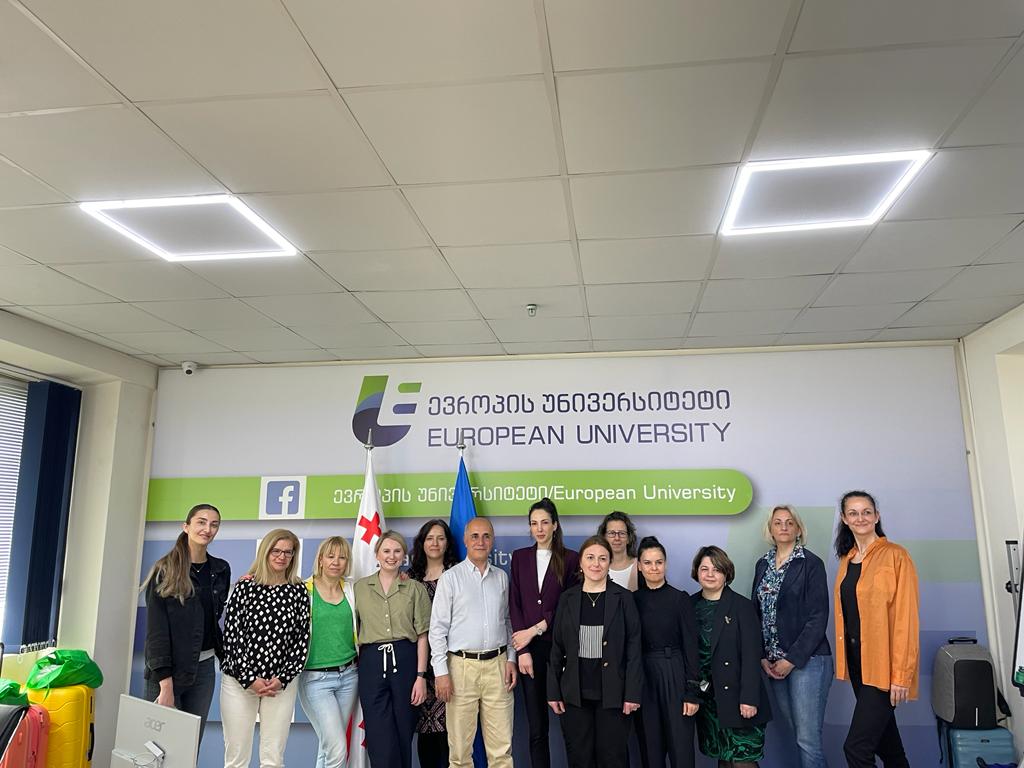
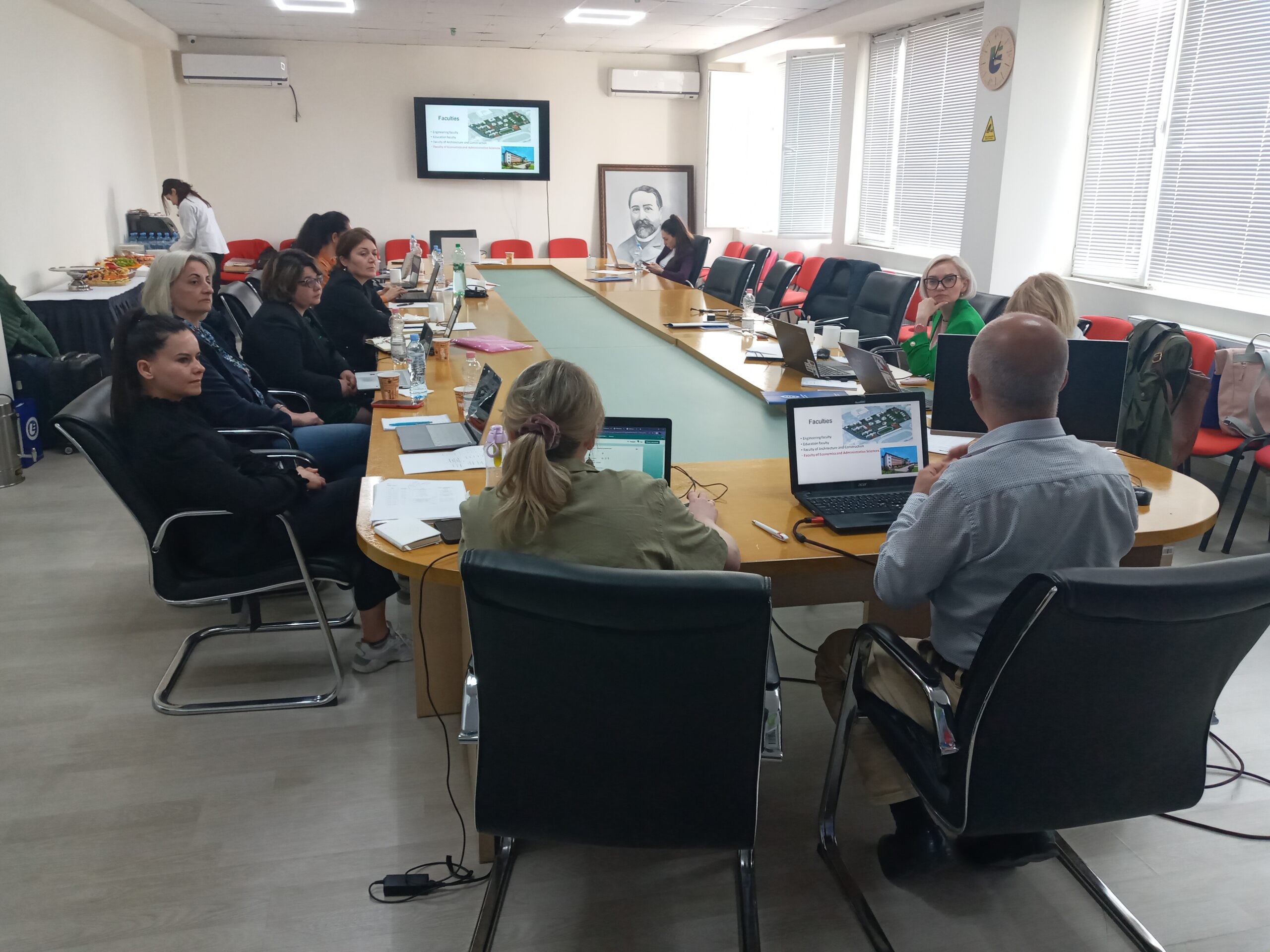
Poland
Partner Meeting Report 21-22 September 2023, Wroclaw, Poland
The third final international meeting of Slow Tourism Management Erasmus Mundus Design Measures partner project took place in Wroclaw on September 21/22, at Wroclaw Business University of Applied Sciences’ administrative building premises (Ostrowskiego Avenue 22, Wroclaw)
The meeting was attended by staff from all 7 members universities, both in the flesh and online, namely Katalin Formadi and Eszter Madarasz (Pannonia University, Hungary), Stanislava Pachrova (College of Polytechnics in Jihlava, Czechia), Khatira Yusifova (Baku Engineering University, Azerbaijan), Ekaterine Bakhtadze (Batumi Shota Rustaveli State University, Georgia), Anna Maria Bielecka and Nihan Sidar (Alanya University, Turkey) Tatia Dolidze, Mariam Mania. Eka Devidze, Nina Kekelidze (European University, Georgia) as well as representatives of the host university: Marta Drozdowska, PhD (Vice-Rector for Science and International Relations); Agnieszka Faron, PhD (Vice-Rector Proxy for Student Affairs); Izabela Gruszka, PhD (Manager of the Tourism and Leisure Department); Paulina Graczyk (Head of the International Relations Office); Justyna Bagińska, PhD; Ludmiła Majewska (Head of the Career Office), Anna Pilarek (Specialist in the International Office Relations).
The two- day meeting marked a final-point of the ongoing Erasmus Mundus Design Measures project no. 101081943 – STM and was a perfect opportunity to sum up the second half of the project and take actions in re-organizing work before submitting the project. All planned activities aimed to discuss already prepared tasks, get the feedback form the partners and plan the final actions before incorporating a complete Slow Tourism Management Project on November 23, 2023.
The meeting was opened by the representatives of the host university (Wroclaw Business University of Applied Sciences) introducing all participant of the meeting, as well guiding online participants about the recording and the follow-up order of the meeting.
The first presentation was made by Izabela Gruszka, PhD, Manager of the Tourism and Leisure Department who summarized the learning outcomes of the joint project that were completed and discussed on previous meetings. 40 Learning outcomes for Poland can be more specific in case of sustainability and leadership, 7 for Georgia and 3 for Hungary. Secondly, the graduate profile was briefly summed up and presented the positive outcomes for the future alumni (gaining unique competences, knowledge form the professionals, working in the international environment, employment opportunities). Both tasks are completed and the representatives agreed on the correctness and quality of the performed tasks.
Another presentation was performed by Marta Drozdowska, PhD, Vice-Rector for Science and International Relations regarded the study plan. In here, it was agreed that during the whole project 100 students (in 4 years) will start the master joint programme and receive the scholarship, 25 students per year in the groups that will not contain more than 30 students. Moreover, the meeting participants decided to prepare student reserve list. The diplomas will be issued by three universities: Wroclaw Business University of Applied Sciences (Master in Slow Tourism and Leisure, specialization: Slow Tourism Management), University of Pannonia (Vesprem, Hungary; MSC in Marketing, specialization: Slow Tourism Management) and European University (Tbilisi, Georgia; Master In Tourism Management), the programme will have 130 ECTS points and contain of three major modules: general courses, major Tourism subjects and specialization courses.
Joint project student may also find in the study plan not obligatory consultation hours (200 hours) and internships (375 hours). The total hours of the programme are 1515 hours and 130 ECTS points. Revas games included in the study programme will be held in Hungary during the second semester.
What is more, it was agreed that the courses catalogue and syllabuses will be finished in few days, due to ongoing process of preparing BIOs by some partners (to be used also as a form of the joint programme promotion).
Next point of the meeting was devoted for course catalogues and curricula, where was accepted that the programme must consist of not less than 50% of contact hours, independent student work, consultation hours (not obligatory), internships 375 hours, what gives in total 130 ECTS points. As agreed on the previous meeting on May 18-19, 2023 in Tbilisi, Georgia (at European University) the programme will be divided accordingly: the first semester in Wroclaw (Wroclaw Business University of Applied Sciences, Poland) having introduction and tourism oriented courses, the second semester in Vesprem (Pannonia University, Hungary) consisting of lecturers and study tours (practical approach), tourism development (Revas Games) and specialization courses (Slow Tourism Management), the third semester in Tbilisi (European University, Georgia) devoted to internships (dedicated to tourism and slow tourism management) and courses run by European University, the fourth semester in Wroclaw (Poland) where seminars and slow tourism management are undertaken.
After the quick coffee break the discussion was followed by verification methos prepared by Agnieszka Faron, PhD (Rector’s Proxy for Students Affairs) consisting of verification procedure: teaching/learning methods, evaluating methods and grading& assessment scale. The learning outcomes validation will be followed by the presented classes protocol template that is lawfully required from the leader’s (WAB) and consequently every university has to do it.
After the lunch break, the meeting continued with the proposals of project engagement made by 3 partnering universities: Alanya University (Turkey), BEU (Azerbaijan) and College of Polytechnics in Jihlava (Czechia). The HEP University was represented by Anna Maria Bielecka (Erasmus+ Institutional Coordinator) and Nihan Sidar, Ph, who on behalf of the Alanya Hep University offered the online course: Toward Multidimensional View of Tourism supported by HEP academic staff, administrative contribution in recruitment process and records (documentation) as the second office (especially for Asian countries), internships and cooperation with boutique hotels (comparison of mass and slow tourism; showing side effects). BEU University, had Khatira Yusifova representative and proposed online meeting with top managers from the tourism industry – within 2 weeks the university has to send the names and topics for the guest lecturers. The last proposal of the project engagement at the second term of the studies and was prepared by Stanislava Pachrova representing College of Polytechnics in Jihlava, Czechia where students will be taking part in lectures and workshops held in Jihlava and case study in Bohemian Paradise UNESCO Park and Vysocina Geopark, taking place on May 6-10, 2025.
The next point of the meeting was devoted to internships where Mrs. Ludmiła Majewska presented the documentation and regulations that must be followed in every internship: internships agreement, student report, student satisfaction survey, employer satisfaction survey and declaration of cooperation with new organizations. Mrs. Majewska mentioned that internships must be divided into two parts: Internship I (devoted to tourism, 250h, 10 ECTS points) and Internship II (devoted to slow tourism management 125H, 5 ECTS points). Internships will take place in second year of studies in the third semester, in every partner country except for student’s home country. As the third semester is at European University, the term starts with internships in September (lasting for 7 weeks) study program begins in November (lasting for 14 weeks).
Last but not least presentation was discussed by Justyna Bagińska, PhD and was concentrated on student and partnership agreement and where representatives agreed on signing the student agreement In Wroclaw (at WAB), where is stated that the joint degree lasts 24 months, consists of 130 ECTS points/ 30 ECTS per university, and a student will be issued three diplomas by three different universities. All participants agreed that it is necessary to include examples what is understood by force majeure and any intermissions in the last year of studies will be regulated by MUNDUS regulations. The representatives are given 2 weeks to provide any advice or comments considering the student agreement.
The first day of the meeting was crowned by excellent dinner at the Bernard’s restaurant at located in Wroclaw Market Square and a night sightseeing cruise on the Odra River.
The second day started early with welcome coffee and brief summary what was discussed the previous day. Accreditation was the next issue on the agenda where Tatia Dolidze (Vice-Rector of International Relations) where the draft proposal regarding the accreditation must be enrolled in the Georgian Ministry and sign by three countries: Poland, Hungary and Georgia (the draft to be sent right after the meeting). For the needs of the accreditation process, WAB may send to European University the budget proposal regarding the application of Slow Tourism Management and in the accreditation document has to be included 3 Tourism Mangers (WAB: Izabela Gruszka, PhD; University of Panonia: Katalin Formadi, PhD; EU: Tatia Dolidze).
The last point of the meeting was devoted to Joint Degree Policy presented by Agnieszka Faron, PhD (Vice-Rector’s Proxy for Students Affairs at Wroclaw Business University of Applied Sciences) where representatives agreed on naming the consortium of 7 partners (CPU): 3 full partners incl. the leader (WAB, University of Pannonia, European University) and 4 academic associate partners (College of Polytechnics in Jihlava, Batumi State University, Alanya University and BEU University). After presenting the agreement to WBA’S attorney, the leader agreed to provide 2 weeks for associated partners to provide its contribution and the final version will be once again present to WAB’s attorney. Any annexes to the Joint Degree Agreement will be uniform forms of the contract. Moreover, after receiving the MUNDUS scholarship, the consortium will create the Joint Governing Board.
The meeting ended with a short summary of the 2 years’ project, obligation to successfully finish all ongoing tasks before the project application process on November 23, 2023.
